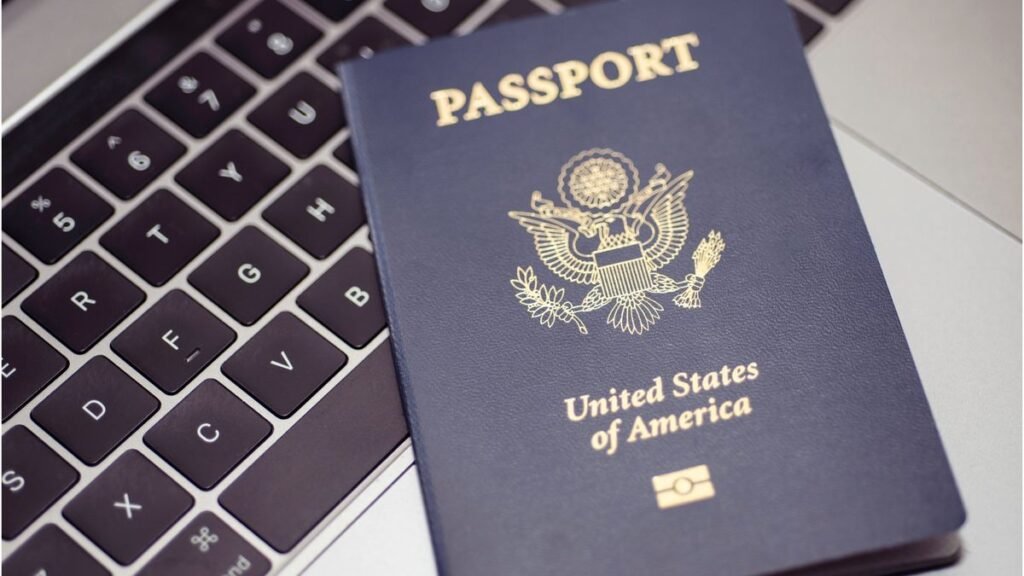New Passport Policy Chills LGBTQ+ Travel Plans
The recent policy change under the Trump administration, which mandates that U.S. passports reflect a person’s gender assigned at birth, has created palpable anxiety among nonbinary and transgender travelers. This troubling directive is not only affecting individuals but is also influencing the broader LGBTQ+ travel community, leading to a reconsideration of the United States as a desirable travel destination.
In January, shortly after taking office, President Trump signed an executive order that instructs federal agencies to recognize only two genders—male and female. This directive requires the State Department to issue passports that “accurately reflect the holder’s sex” based on their assigned gender at birth. This change marks a significant shift from a more inclusive approach that allowed individuals to modify their gender on passports—a practice that been permitted for over two decades, even during Trump’s first term. Notably, the Biden administration had previously included an option to use an “X” for individuals who identify as gender nonconforming, which has now been eliminated.
The implications of this policy are severe for transgender, nonbinary, and intersex travelers. Advocates warn that many individuals fear harassment or questioning from U.S. border authorities, particularly if their appearance does not align with the gender marker on their passport. Arli Christian, Senior Policy Counsel with the American Civil Liberties Union (ACLU), emphasized that the impact on these individuals is significant, leading to canceled trips and widespread fear. Christian noted that the discrepancy between a traveler’s lived gender and the gender marker on their passport “subjects that person to harm, including an invasion of privacy” and “risks of discrimination in various settings.” Furthermore, Christian argues that the executive order infringes upon fundamental rights, including the right to travel freely.
Travel professionals are observing a decline in interest from transgender travelers toward the U.S. Duncan Greenfield-Turk, chief travel designer at Global Travel Moments, stated that many transgender individuals are opting against traveling to the U.S., driven by safety concerns. He explained, “Travelers may choose not to embark on journeys unless they are fortunate enough to have fully aligned their appearance with their passport gender.” This creates a travel environment marked by uncertainty and fear, making it difficult for travel advisors to recommend U.S. destinations.
John Tanzella, CEO of the International LGBTQ+ Travel Association (IGLTA), echoed these sentiments, noting that members are increasingly seeking travel alternatives outside of the U.S., particularly in Canada, Mexico, and Europe. With the State Department’s recent extension of hostile policies towards transgender individuals seeking U.S. visas, many countries have updated their guidelines accordingly. For instance, Denmark cautioned its citizens that an inconsistent gender marker could hinder their travel plans to the U.S.
Financial Implications for U.S. Travel Market
The ACLU lawsuit contends that the policy not only compromises the safety and rights of LGBTQ+ travelers but also poses a threat to the U.S. economy. According to the Reports & Insights, the global LGBTQ+ tourism market is projected to reach $579.2 billion by 2033. Traditionally, the U.S. has garnered a considerable share of this market due to its progressive policies and welcoming atmosphere, which are now at risk.
Christian cautioned that while the immediate effects may seem limited to a small community, the broader implications are concerning. “Taking away the ability to travel freely for such a specific subset raises questions about who might be next,” she stated. Such echoes of discontent are being conveyed by members of the wider LGBTQ+ community, urging a collective awareness of how these policies can ultimately affect everyone’s rights.
As the rhetoric surrounding LGBTQ+ issues continues to shift under the current administration, many travelers are re-evaluating their vacation plans, favoring destinations that prioritize safety and inclusivity. The consequences of these changes could have lasting effects on the U.S. travel industry and its reputation as a welcoming destination for all.


